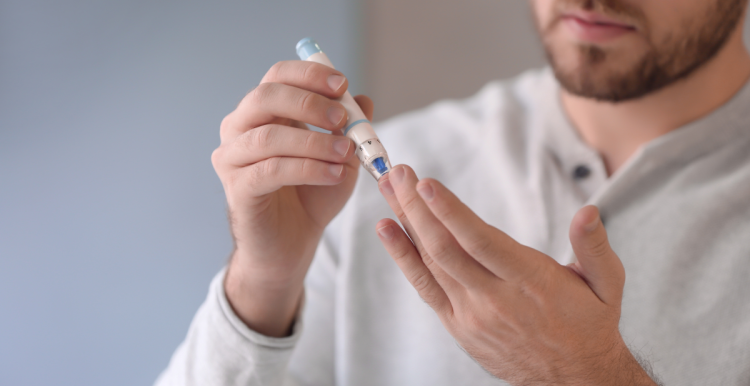What are the symptoms and treatments for diabetes?

What are the symptoms of diabetes?
The most common symptoms of diabetes are:
- Needing to pee a lot, especially at night.
- Feeling very thirsty.
- Feeling more tired than usual.
- Losing weight without trying to.
- Genital itching or thrush.
- Cuts and wounds take longer to heal.
- Blurred eyesight.
- Increased hunger.
- Fruity-smelling breath.
Speak to your GP if you're experiencing any of these symptoms. You can also get tested for diabetes for free at your local Pharmacy.

What treatments are available?
Diabetes can be carefully managed with a combination of medication, diet and lifestyle changes. Treatments differ slightly depending on the type of diabetes you are diagnosed with.
The main ways you can manage Type 1 diabetes are:
- Insulin injections or insulin pumps
- Carb counting and eating well
- Being physically active
- Maintaining a healthy weight
- Using a continuous glucose monitor (CGM) or flash glucose monitor
Some people with type 1 diabetes may also use a closed-loop system, also called an artificial pancreas. It’s another way to help you manage your type 1 diabetes without having to do much of the work yourself.
The main ways you can manage Type 2 diabetes are:
- Eating a balanced diet
- Exercising and moving regularly
- Losing weight
- Metformin (usually taken as a tablet)
- Insulin injections
Some people with Type 2 diabetes use a flash glucose monitor or continuous glucose monitor to monitor their blood sugar levels instead of doing multiple finger prick checks.
With most forms of diabetes, people are advised to move more and eat well. Regular activity and a balanced diet can support your body's ability to respond better to insulin.
Need more support?
If you want to know more about diabetes, treatments and available support, check out these valuable resources:
British Heart Foundation - Diabetes - causes, symptoms and treatments
Want to share your views?
It only takes a few minutes to tell us about your experience of health and social care. We use your views to raise concerns with the people running NHS and social care services to make care better.


